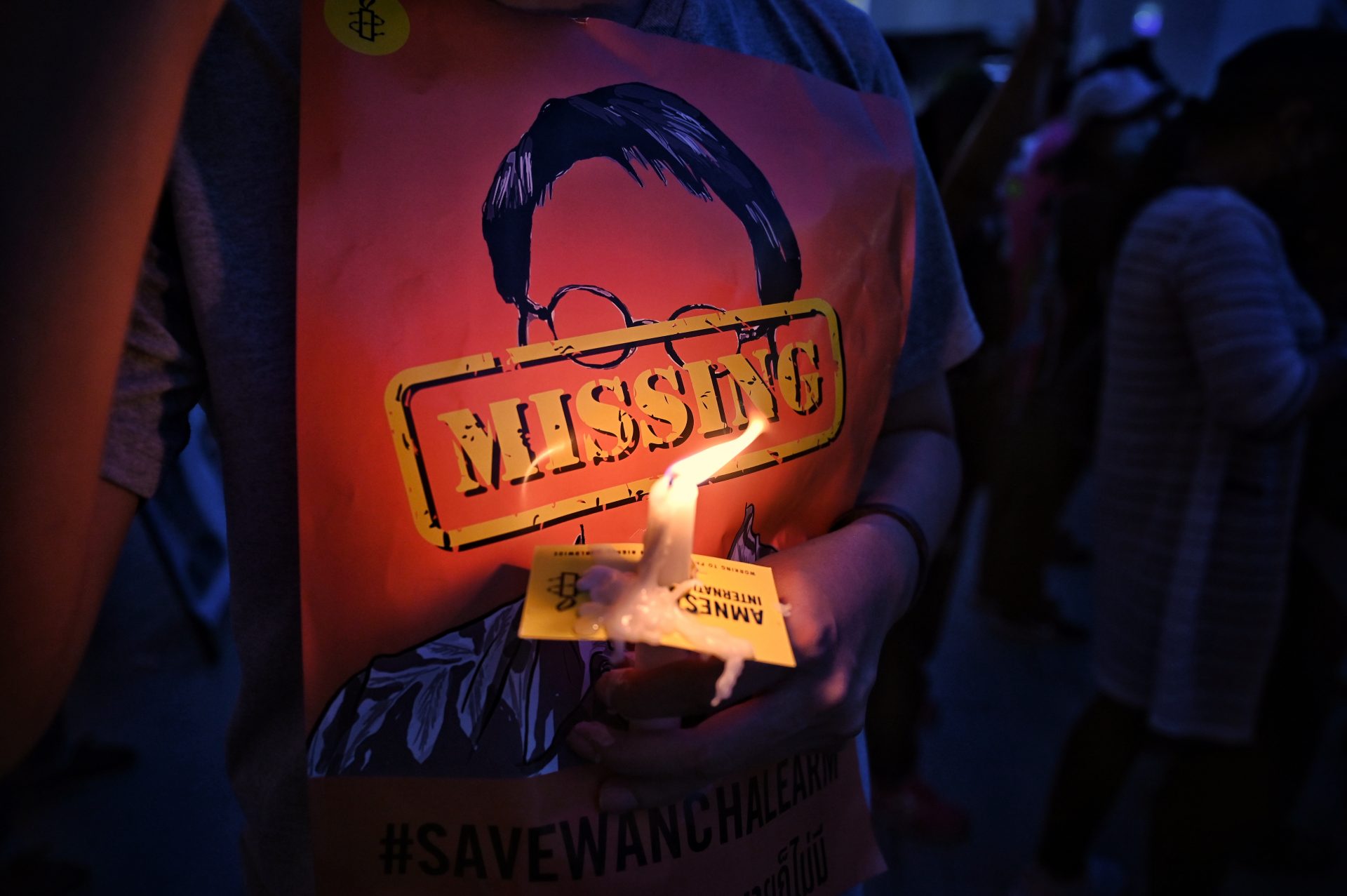Thai lawmakers on Thursday gave initial approval to a law against torture and forced disappearances, after years of delay and criticism from rights groups.
Activists have long accused authorities of state-sanctioned abductions and torture, and the UN says there have been more than 80 disappearances since 1980.
The kingdom’s criminal code does not currently recognize the offenses, but rogue state officials convicted under the new legislation will face long prison terms.
On Thursday, the draft law passed a first reading in parliament, though it is not clear when lawmakers will take it up again, or when it will finally come into effect.
“This is considered as an initial success after we waited for a year and a half for the draft bill,” opposition Move Forward Party MP Rangsiman Rome told local media.
“Torture and disappearance cases have become an important issue, which the parliament has agreed to push forward.”
The legislation has been long in coming — the cabinet approved the changes in 2016 and bills languished for years on the parliamentary agenda.
Nine Thai citizens have disappeared in neighboring countries since a military coup in 2014, including two whose bodies were dumped in the Mekong River after they were abducted in Laos in 2018.
Last year prominent Thai activist Wanchalearm Satsaksit was dragged off the street in the Cambodian capital Phnom Penh and has not been seen since.
Thursday’s vote came weeks after police brutality was thrust into the headlines with the leaking of video showing a drug suspect being suffocated with plastic bags during police interrogation.
Thailand signed a UN convention on enforced disappearances in 2012 but has yet to ratify the treaty.
In its 2021 annual report, Human Rights Watch said Thai authorities “engage in practices that facilitate torture and enforced disappearances, such as the use of secret detention by anti-narcotics units, and secret military detention of national security suspects.”







